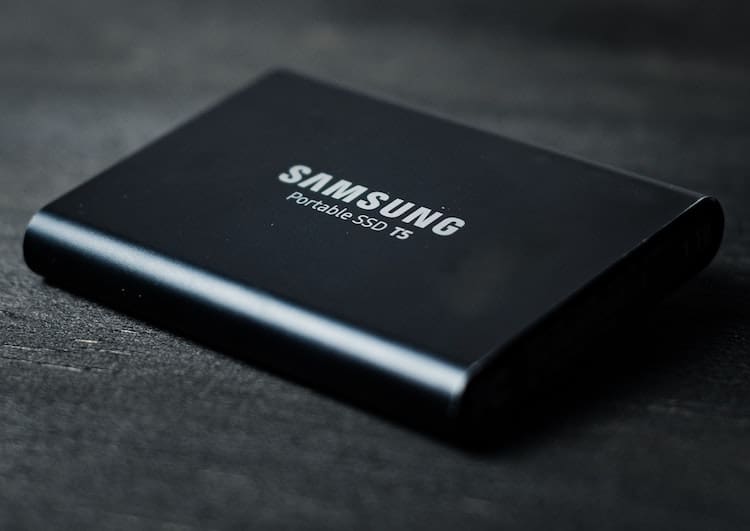
One of the newer developments in the computer world today is the regular use of the solid-state drive or the SSD, which is a lot faster than the usual hard disk drive or HDD. But, as fast as the SSD may be, does it make a difference when you replace your HDD with an SSD? Will an SSD actually make your computer faster?
Upgrading to an SSD will make your computer faster. That’s because an SSD is a lot faster than an HDD. This means that, when your computer needs to open a program or file stored in the SSD, it will now be able to do so faster because of the speed difference between an SSD and an HDD.
There are plenty of things that go into the factors that can affect the speed of a computer. One factor is the storage drive, which is where all of the computer’s files and programs are stored. SSDs are faster at both reading data and at storing data on a computer.
How is an SSD different from an HDD?
When we are talking about the different parts and components of a computer, one of the components that is just as essential as all of the others is the storage drive. This storage drive acts as the main storage unit that houses all of the necessary files and data that your computer needs to be able to function.
Traditionally, the storage drive came in the form of what we call the hard disc drive or HDD, which is a drive that comes with different moving parts. These different parts and components inside the hard drive are the ones that are responsible for allowing the drive to move and function.
However, with the developments in storage drive technology, more and more people are now using SSDs, which are often called the improved versions of the classic HDD. But how exactly is an SSD different from an HDD?
For starters, SSDs don’t come with moving parts that will allow the drive to read and write files and data on them. Meanwhile, SSDs come with a more complex architecture that allows them to function in a way that’s very different compared to your usual HDD.
As a result, SSDs are capable of faster reading and writing speeds than HDDs. A lot of SSDs are capable of reading speeds that are up to 10 times faster and writing speeds that are up to 20 times faster compared to your usual hard drive. This basically means that these are storage drives that are much faster than hard drives.
On top of that, SSDs are also designed to be much more compact than hard drives. Your regular 1 TB SSD can be made much smaller than a 1 TB HDD. On top of all that, because SSDs don’t use moving parts, they are much more durable compared to HDDs, which can easily break due to a fall as the moving parts in them can get messed up.
So, in many ways, solid-state drives are simply better than hard drives. But SSDs are actually very expensive and may make you wonder if they are worth the upgrade right now while they are still as expensive as they are. Most SSDs can be up to four times more expensive than HDDs.
Will upgrading to an SSD make your computer faster?
Now that you know that SSDs are faster albeit more expensive than hard drives, one of the things you may wonder is if the switch to a solid-state drive is indeed worth the price and the effort. As such, can SSDs really make your computer faster?
Generally, upgrading to an SSD will make your computer faster. That’s because there are more things than just processing speed and RAM when it comes to speed. In fact, when it comes to your computer, all of the different components of your computer work together to make sure that it is capable of reaching optimal speeds. As such, the storage drive or, in this case, the SSD has a role to play in making the computer faster.
So, the reason why an SSD is capable of making your computer faster is because your computer uses the storage drive as the component where it stores all of the computer’s necessary data and files. The computer needs to use these data and files from time to time whenever you are using the computer.
Now, the computer reads these data and files from the storage drive whenever it needs to perform certain tasks. This means that it relies on the reading speeds of the storage drive whenever it opens certain data and files that are stored in this drive. The faster the reading speeds are, the faster that your computer will be able to read these data and files.
Numerically speaking, transfer rates for most SSDs today can reach up to 4 Gbps. This roughly translates to 4,000 MBps, which is much more than what HDDs can offer you. On the other hand, mid-level SSDs can deliver transfer rates of 500 to 600 MBps, which is still a lot compared to the usual 128 MBps transfer rates that hard drives come with. This means that even the mid-level versions of SSDs are a lot faster than your regular HDD.
If you have upgraded from an HDD to an SSD and then you successfully migrated your operating systems and files to your SSD, then you can expect to see faster bootup times. This is an added bonus to upgrading to SSD.
In tests, it was found that a computer that runs on an HDD and 2 GB worth of RAM needed 1 minute and 11 seconds to boot up. Meanwhile, the same computer that now runs an SSD and the same RAM was able to complete the boot up in under 33 seconds, which makes the boot up more than twice as fast when compared to when it was using an HDD.
You will also notice programs and files opening faster as well. For example, if you are opening a program such as Photoshop, the same computer stated above that is still using a hard drive will open it in under 16 seconds. Meanwhile, upon migrating to a solid-state drive, the speed of opening the same program increased by more than 70% as opening Photoshop only took about 4 seconds.
However, keep in mind that the solid-state drive’s speed is usually only apparent when you are reading and writing files. This means that regular tasks such as surfing the internet or using word processing programs won’t show the speed of the SSD.
Meanwhile, if you are a gamer running games that constantly require loading files from the storage drive, that is where the solid-state drive shines the brightest. Most gamers use the more expensive variants of SSDs with reading and writing speeds that are in gigabytes instead of just megabytes. This will allow them to cut down the loading speeds of their games by a lot to the point that on-screen loading becomes nearly nonexistent.
All that said, upgrading to an SSD will indeed make your computer faster. However, those who are only using their computers for regular everyday tasks may not see the speed of an SSD a lot in comparison to animators and gamers, who require powerful speeds from the storage drive.
As such, while an SSD can make a computer faster, the speed will not be something that you would immediately notice unless you are actually using your computer for heavier tasks that require the SSD to work constantly.
